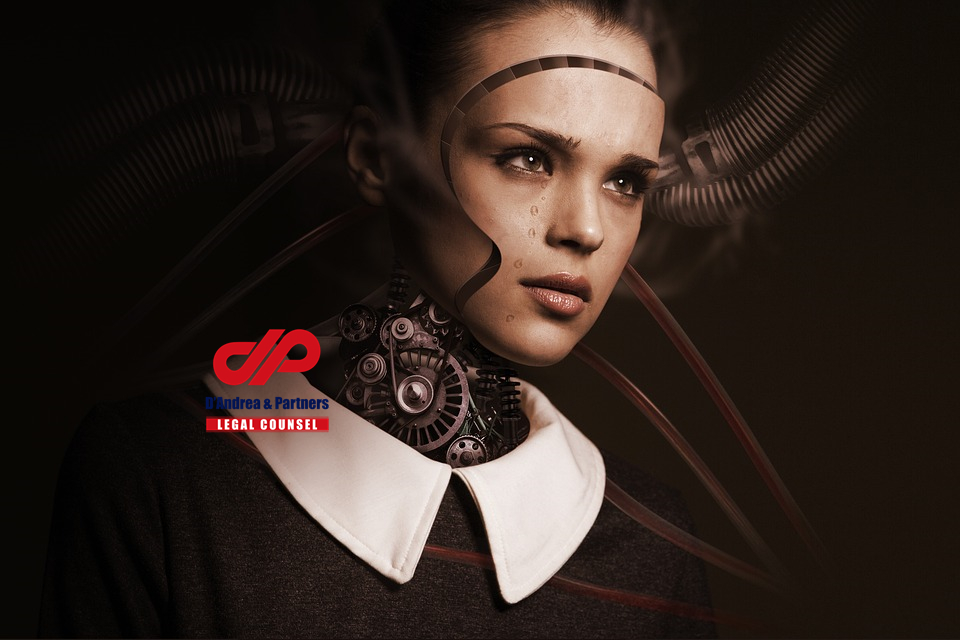The artificial intelligence (AI) industry has constantly been in the news recently, showcasing its growing role in today’s society. However, with great power comes great responsibility and it is up to legislators to ensure a healthy and sustainable development of the industry, let’s compare the current state of AI policy in China to Europe and outline what some of these regulations might hold for the future of this technology.
The AI industry’s recent rise has been nothing short of outstanding. Self-driving cars, sentient androids and AI systems which have repeatedly bested their human counterparts in games like Jeopardy and Go. Things once only found in the realm of science fiction have now become reality. People’s daily lives require the use of internet search engines, global position system navigation and voice recognition software. Accusations have been levelled against AI taking low-skilled jobs, however recent developments show white-collar professionals, such as lawyers and surgeons, being eventually supplanted as well. Despite AI permeating every level of society, there has been little added to the substantive discussion as to what policymakers should do to steer this technology in the right direction.
It has been controversial among AI experts that regulation, especially in the technology’s early stages of development, would be detrimental to its evolution. However, considering the fact that AI is likely to be widely implemented in society, it seems wise to proactively put in place regulations that can reign in some of the more disastrous outcomes that might arise.
At the global level, policymakers have struggled with how AI should be regulated. However, domestic governments have been focused on how research and development could be increased in AI. This has necessitated the recruitment and retaining of high-level talent with particular industry expertise. In-line with this policy focus, President Xi Jinping has emphasised the importance of AI in China and has boldly proclaimed that China will become a world leader in this field by 2030.
In order to achieve these lofty goals, the Chinese Government has drafted a comprehensive national policy that can both regulate and promote China’s AI development. The New Generation AI Development Plan (Plan), announced by the State Council of the People’s Republic of China (State Council) in July 2017, attempted to clarify misconceptions attached to AI development by “making studies of certain legal issues on AI application”.
Although the provisions set out in the Plan are in its early stages and are primarily geared towards implementation and policy support, there are also sections which focus on AI’s legal, ethical and social impact as well. Specifically, the Plan examines AI’s impact on China’s national security and privacy protections and recommends the construction of an AI monitoring and evaluation system to oversee its use in the employment sector. When it comes to employment, the Plan encourages businesses to provide extensive training in AI education. This ensures the smooth transfer of unskilled workers into another profession not directly impacted by developments in AI. The Ministry of Science and Technology of the People’s Republic of China (MOST) will also create an oversight body to monitor and advance the Plan’s implementation. Spearheading its enforcement, MOST has since assigned some of China’s most famous internet giants to help coordinate this program and foster development. Baidu will lead the research into autonomous vehicles, Tencent will be in charge of medical innovations, and Alibaba will work on developing smart cities and iFlyTek will improve speech interfaces.
In contrast, the policy approach in Europe has been relatively more cautious. The publication of the European Civil Rules in Robotics brought to the public’s attention the need for a coherent European-wide approach to AI investment and legality. The European Commission recognises the need for AI investment, as demonstrated by the establishment of the Partnership for Robotics in Europe (SPARC), a public-private partnership with the objective to establish a working robotics strategy. with Investments under this joint initiative expected to reach 2.8 billion euro with 700 million euro in financial investments coming from the European Commission under Horizon 2020 over the course of 7 years. This cooperative project is by far the largest civilian-based research programme for AI in the world.
In Europe, AI as defined by the European Commission as “endows systems with the capability to analyse its environment and take decision with some degree of autonomy to achieve its goals”. The European Commission has been more reactive when it comes to crafting suitable legislation for AI, as in order to assess the safety of AI, experts must be consulted before crafting a new and comprehensive legal framework as some AI applications may raise new ethical and legal questions. In this vein, the General Data Protection Regulation (GDPR) ensures protection and legal clarity in regards to AI-based applications for European citizens data privacy. The European Commission also recently welcomed the final Ethics Guidelines for Trustworthy Artificial Intelligence prepared by the High-Level Group on Artificial Intelligence (AI HLEG) published on 8 April 2019 listing out the seven key requirements that AI systems should meet in order to be trustworthy.
When it comes to addressing the impact AI will have on European society, the European Commission has already established the Digital Jobs and Skill Coalition, a body which aims to better equip the European workforce with the necessary skills needed to thrive in a digitised/automated workplace.
China, finds itself closer to the ‘middle income trap’. As the cost of labour continues to rise, foreign firms will be less likely to invest. In order to avoid this ‘trap’ the State Council has begun to improve the monitoring and evaluation of AI systems. On the European front, although there is an acknowledgment of AI’s enormous potential, the EU currently finds itself in the midst of their own unemployment issues in recent years and instead of rushing ahead. Further analysis is needed before implementing a more comprehensive legal framework, however, some effective groundwork has already been laid down which shows promise..
D’Andrea & Partners is an international law firm and point of reference for companies that want to enter the global market and be successful. Established by its founding partner, Carlo Diego D’Andrea, attorney at law and pioneer in Italian and European law in China, today the firm is made up of professionals coming from different countries around the world. Besides the main operational headquarters in Shanghai, D’Andrea & Partners has a number of branches in China and outside the country in Italy, India, Vietnam and Russia. The firm’s clients include large industrial groups, plus medium-sized Italian, European, Chinese and global enterprises.







